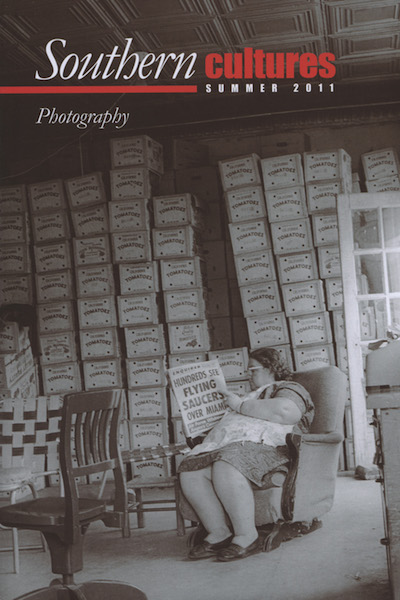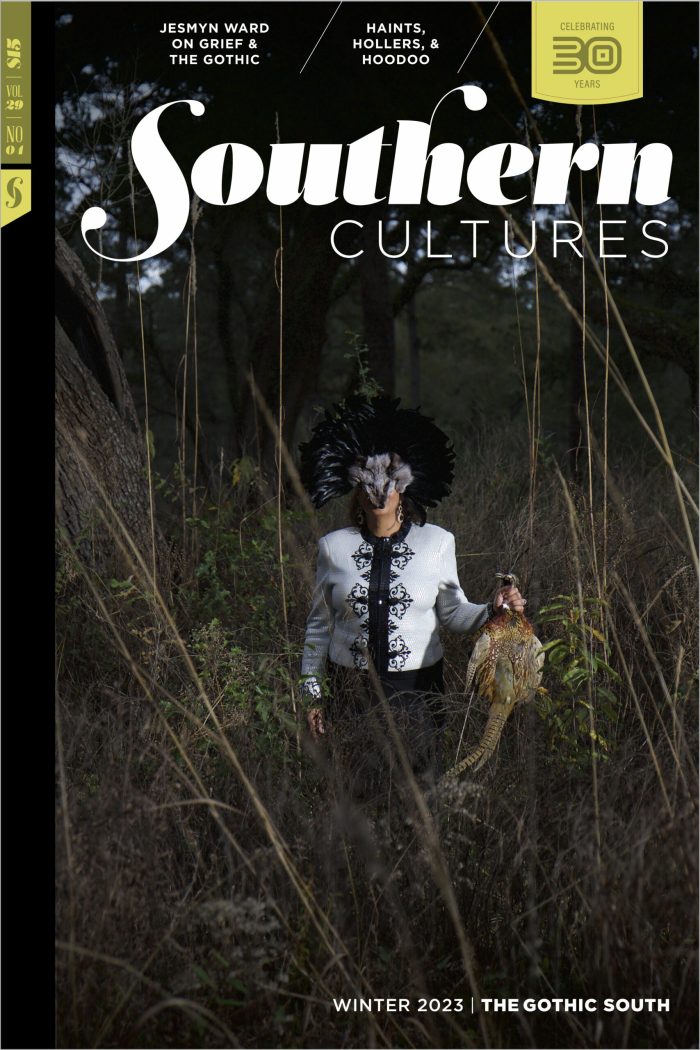by Harry L. Watson
“It requires very special talent to make great photographs, and those who have it are among our finest artists.” What is it about photographs? They have been around since the 1830s but still seem far more novel than paintings or drawings. Photography equipment can be cheap and simple and takes no special talent to use, »
by Tom Rankin
“Photography in its finest and most decisive moments is about those tired or ignored or unseen parts of our lives, the mundane and worn paths that sit before us so firmly that we cease to notice. It is, we might say, about rebuilding our sight in the face of blindness, of recovering our collective vision.” »
by Michael Carlebach
“Many years ago I concluded that for me truth and beauty, and perhaps wit and wisdom as well, are more likely to reside in what is ordinary and seemingly insignificant. This is, perhaps, a sideways look at America and American culture, but it is one that can produce moments that describe us all—but without makeup »
by Ben Child
“When the color photographs of William Eggleston first appeared at the Museum of Modern Art in 1976, the boldness of Eggleston’s palette and his disregard for the conventions of black-and-white photography were shocking; nearly all the major critics were scornful, and Ansel Adams wrote a scathing letter of protest.” When the color photographs of William »
by Lynn Marshall-Linnemeier
“In this examination, magic and myth—two of my favorite vehicles—act as buffers to the dominant power structure. It brings together two bodies of collectibles, one personal and one commercial, with the intent of shifting stereotypes about race and southern culture.” This project has its roots in my travels over twenty years to Mound Bayou, Mississippi, »
William Christenberry
by William R. Ferris
Honoring William Christenberry (1936–2016) Bill Christenberry was like a spiritual brother who explored his homeland in Hale County, Alabama, with a keen eye. Each summer he returned to document and photograph these familiar worlds. With his meticulous eye, he showed the weight of time on this landscape, tracking change as paint faded and peeled on »
by Dolores Flamiano
“Mieth and Smith shared a belief that photography could bring social change. They viewed Pat Clark and Maude Callen as heroic healers whose stories would inspire racial understanding. Both photographers shot powerful images of the most visceral human experiences: birth, death, sexuality, and disease.” In 1940, Life photographer Hansel Mieth traveled to Hell Hole Swamp, »
by Susan Harbage Page
“‘Rough. It is rough being a female.'” Hot in the summer, cold in the winter. Those were the conditions we worked in at Bollag International Corporation, a textile recycling plant in Charlotte, North Carolina. I photographed and interviewed the women I worked with in 1989 and 1990. The women spent long days standing at tables, »
Family Photographs from Eastern North Carolina
by Scott Matthews
This article first appeared in the Photography Issue (Vol. 17, No. 2: Summer 2011). “It is in fact hard to get the camera to tell the truth; yet it can be made to, in many ways and on many levels. Some of the best photographs we are ever likely to see are innocent domestic snapshots »





